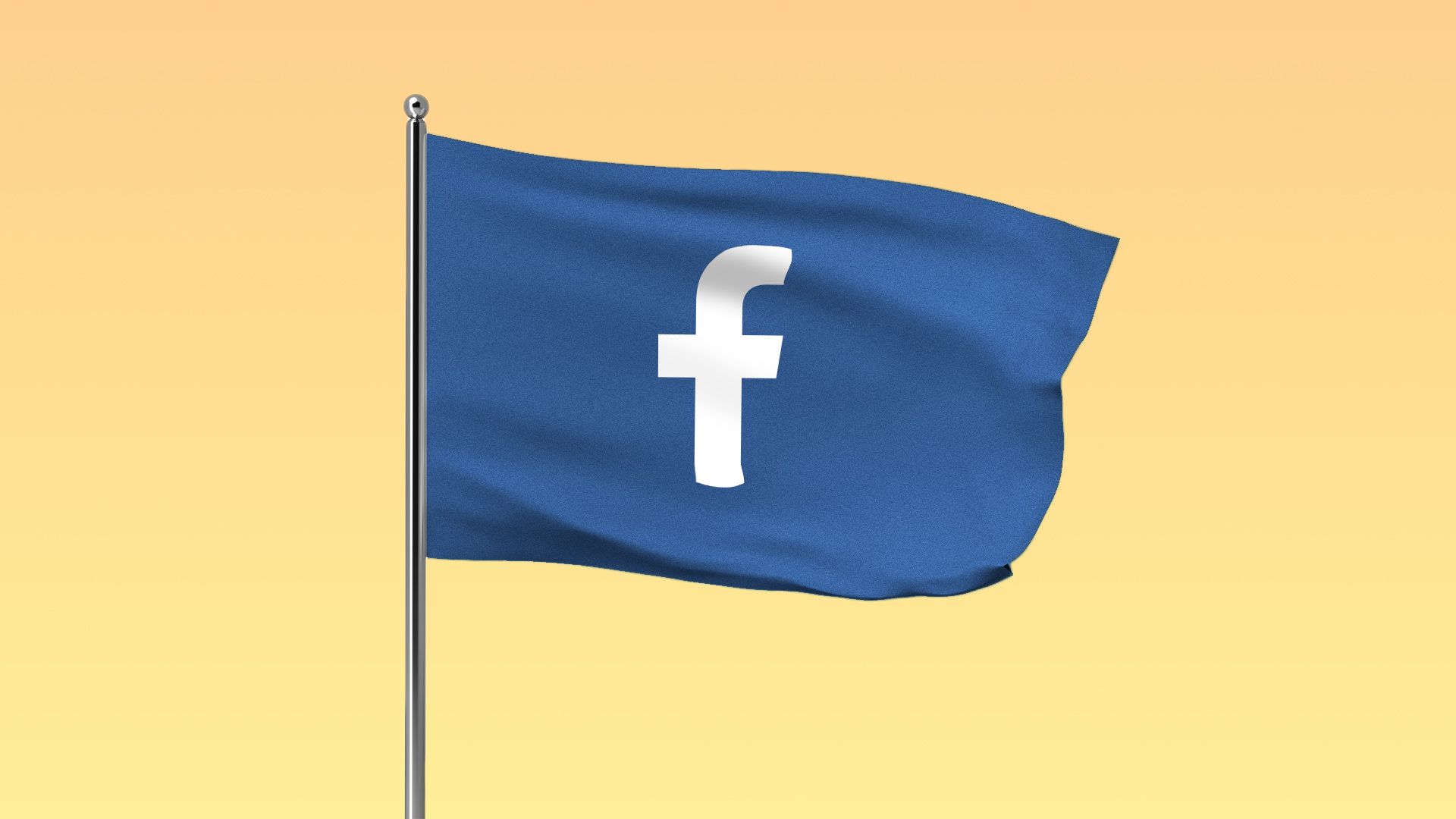The sovereign state of Facebook
Add Axios as your preferred source to
see more of our stories on Google.

Illustration: Aïda Amer/Axios
Facebook's scale and power have often made it seem more a kind of quasi-sovereign nation than a traditional company — and right now it's looking more like a failing state than a thriving one.
The big picture: Digital giants like Facebook, Google, Apple and Amazon are making the kinds of decisions about speech, personal safety, political power and financial relationships that have belonged to governments in the past. But at heart they are profit-making corporations with only limited competence in these domains, so their choices frequently go awry.
The big picture: Facebook's operations as a quasi-state span realms such as ...
1. Speech: Facebook's mission of connecting people and giving them a voice, combined with its global reach and billion of users, means that it is constantly making decisions about who can say what.
- The company has moved forward with plans to invent a "Supreme Court"-like independent content moderation appeals board.
- But in the meantime its evolving rules, particularly around political speech and advertising, have left a wake of confusion and consternation.
2. Money: Earlier this year, Facebook announced with great fanfare that it was launching its own global cryptocurrency, called Libra.
- But the plans for Libra have quickly run into a regulatory sawmill, and key financial partners have bailed on the project.
3. Safety: Facebook's global footprint means it is constantly dealing with waves of conflict that expose users to harm, and its leadership has little experience or background to head off or mitigate these disasters.
- In 2018 a UN report held Facebook responsible for disseminating hate speech that fueled atrocities against Myanmar's Rohingya minority.
- Something very similar is happening today in Assam, the rights group Avaaz has reported.
4. Taxes: Facebook doesn't tax us directly for cash, but stockpiles our data to target ads and fine-tunes our "engagement" to consume our attention.
- As with any tax, if the rates are too high, people rebel.
- That hasn't yet happened with Facebook, which reports continued user growth. But there are signs that the platform has lost its cachet among the younger users who set online trends.
Be smart: As a quasi-government, Facebook is also an absolute monarchy.
- Mark Zuckerberg's special shares give him total personal control over the company's decisions.
- The company also has gobs of cash and tons of revenue to play around with. That lets it pursue efforts like subsidizing financially-strapped news publishers without much hesitation.
Yes, but: Of course, Facebook isn't a real government and doesn't have true sovereign power. It's subject to laws around the world, and in the U.S. many legislators and regulators are eager to remind the company that antitrust laws apply to it.
Our thought bubble: Internet idealists and tech visionaries have long bemoaned the sluggishness and inefficiency of government processes. Their companies have moved at "internet speed" to revamp our lives while the public sector can barely pass a law or solve a problem.
- One reason governments are more cumbersome is that they actually have to balance tons of competing interests.
- Companies mostly worry about their shareholders (in Facebook's case, one controlling shareholder). States and their leaders must manage complex webs of stakeholders wielding constantly shifting amounts of political power.
- Facebook has a rough road ahead because it has no experience with this dance — yet, suddenly, the company must perform it everywhere.
